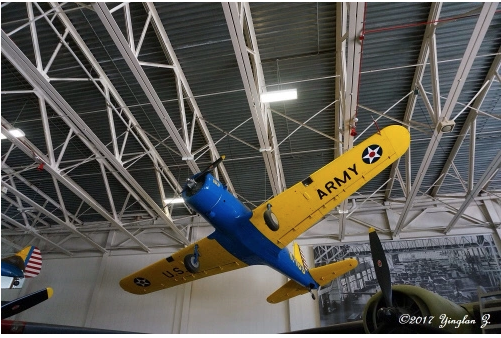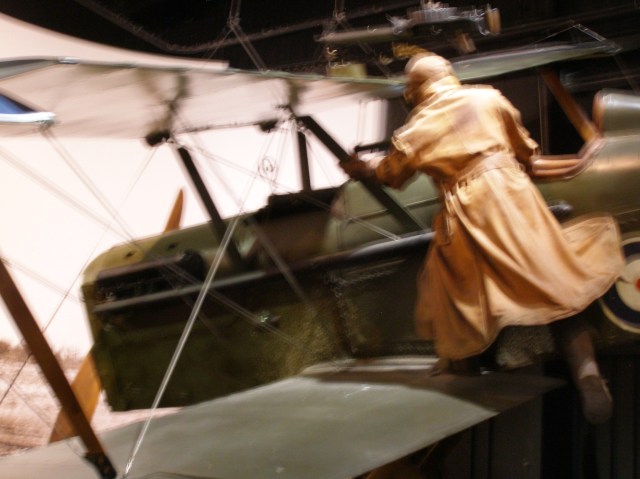
The night before the mission Squadron 74 threw back their beers and cuddled their girls They knew there would be empty seats and some broken-hearts the following night.
1100 hours the bugle sounded. A quick briefing. No longer carefree, they ran to their planes. Commander Keith ‘Grid’ Caldwell headed out with his men. “On your bikes, chaps” he ordered.
The formation crossed the line at 1330 hrs. Soon they ferreted out some enemy planes. Bratatattat. Bratatattat. Sparks flew from the machine guns. Grid, in his element, attacked, then spiralled, righting his plane to appear from nowhere shooting the German out of the sky. He dipped away. His plane shuddered. He had collided with one of his own at 7000 feet. The plane with it damaged wing spun downward another 2000 feet. Without a parachute Grid had a choice of death. He decided to jump. He leant out over the wing and the plane steadied, flattening out. Holding the right rudder with his left foot he kept his weight on the wing and managed to fly his crippled aircraft to safety.
Thank you to Priceless Joy for hosting flash fiction for aspiring writers and thank you also to Yinglan who provided this weeks photo prompt.
This photo immediately reminded me of an war aircraft museum I have visited in New Zealand. In the WWI exhibit I learnt about this NZ pilot who had a narrow escape and was one of the few pilots to survive WWI where the average lifespan of these young men was two weeks from commencing flying missions. Grid went on to become a Air Commodore in WWII. He gained the nickname Grid as it is NZ for bicycle and this is what he called the planes.

© irene waters 2018
The other interesting fact that I didn’t know was that in WWI, unlike the German pilots, British pilots weren’t issued with parachutes. The rationale of the British Government was that the pilots may not be quite as focused on carrying out the task at hand and might bale earlier, ditching expensive aircraft that potentially could limp home. It took them some time to realise that trained fighter pilots were a more valuable commodity than the plane. Once they realised this parachutes became standard issue.






Wow, great story! Very harrowing. So glad he was able to land safely.
LikeLiked by 1 person
Thanks Joy. It is an amazing story and I bet you aren’t the only one that was glad he made it safely down.
LikeLike
It is an amazing story!
LikeLiked by 1 person
Well I did not know that about the parachutes. Quite shocking really that they valued lives so little.
LikeLiked by 1 person
Yes it is staggering to think that they were losing pilots at a great rate and yet felt they would be chickens if they gave them parachutes. In a way it is similar to how we treated our shell shocked veterans and desserters at the time. Thankfully we have come along way since then in regards to our care of those who join the forces.
LikeLiked by 1 person
Yes very true there was little understanding for those people who broke down under the strain of war.
LikeLiked by 1 person
When you mentioned those old biplanes flying at 7,000 feet, I had to look it up because I didn’t know they could fly so high. I was shocked when I discovered the service ceiling for a Sopwith Camel was nearly 21,000 feet.
LikeLiked by 1 person
It must have been jolly freezing up there at that height. I read two different articles on Grid’s story – he was flying a S.E.5a (I don’t know the plane) one article said he was at 16000 feet and the museum info said 7000 feet. I too thought 7000 feet more likely but perhaps it was 16000.
LikeLiked by 1 person
It’s not just the temperature, it’s the air pressure. These guys were in open cockpits, and if they went too high, breathing was going to be a problem. But then again, their engines ran on air, too.
LikeLiked by 1 person
I am really glad the pilot survived, Irene. Great fiction.
LikeLiked by 1 person
Thanks Robbie. I’m glad he survived also.
LikeLiked by 1 person
Great story and great backstory as well. Nice read, Irene.
LikeLiked by 1 person
Thanks Varad. Glad you enjoyed it.
LikeLike
Dramatic story Irene. How these men kept going up for flight after flight knowing the chances were they wouldn’t return this time fills me with admiration. Well written.
LikeLiked by 1 person
Yes it fills me with admiration also. Thanks Iain.
LikeLiked by 1 person
I enjoyed the detail in this story and the links.
LikeLiked by 1 person
Glad you did Michael.
LikeLike
Interesting history, though the rationale for not issuing parachutes is startling!
LikeLiked by 1 person
Yes it is shocking isn’t it but the way the British treated their shell shocked was a similar rationale. At the time they didn’t realise their most valuable commodity were the men. Hopefully it has changed but you are a better judge of that.
LikeLiked by 1 person
There’s always a feeling of soldiers being bullied into believing they are tough instead of being treated as valuable.
LikeLike
What an incredible story!
LikeLiked by 1 person
He probably got a big buzz out of getting the aircraft home with his life. Here he was going to jump to an almost certain death and instead he skilfully managed to fly virtually from outside the cockpit. Yes an incredible story.
LikeLiked by 1 person
Good Lord! Wasn’t his time to go!
~~~~
No parachutes???!!! 😦
Ellespeth
LikeLiked by 1 person
Horrifying isn’t it that they sent them up with no way of saving themselves.
LikeLike
Great story! You maintained the thrill throughout.
LikeLiked by 1 person
Thank you.
LikeLiked by 1 person
A thrilling snapshot.
LikeLiked by 1 person
Thank you Yarnspinner.
LikeLike
How horrible. No parachutes! I’m glad that changed. Great take on the prompt.
LikeLiked by 1 person
Thank you. I bet the pilots were glad it changed also.
LikeLike